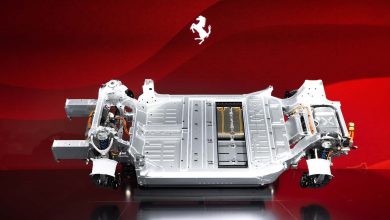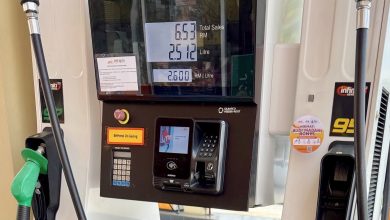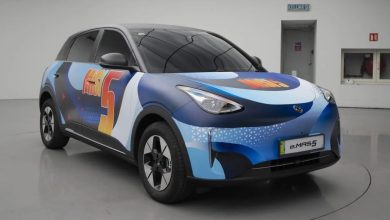MITI aims to be fully transparent on the issuance of Open Approved Permits (APs)
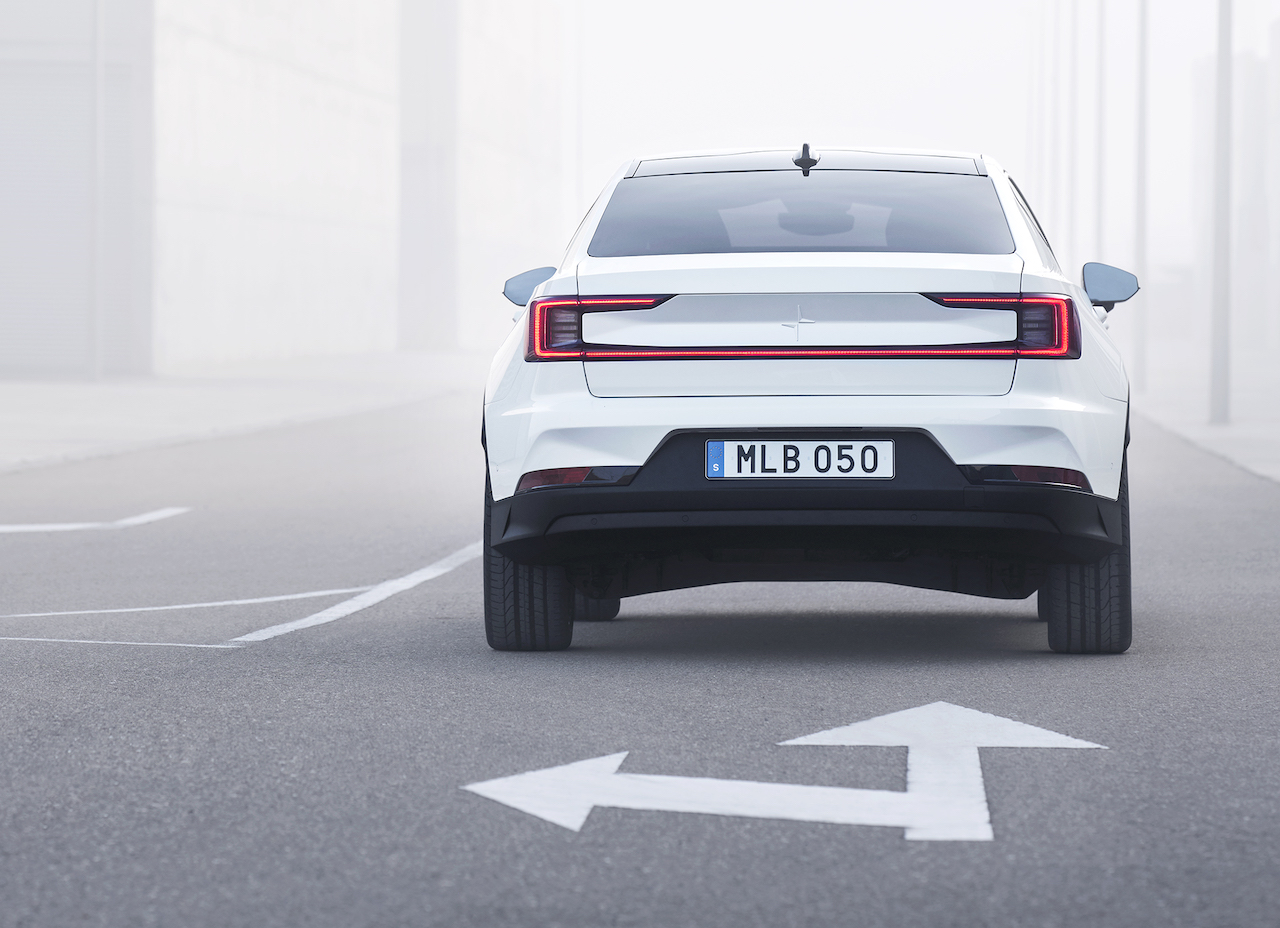
After our recent article about how 38 new AP’s holders have come into business in Malaysia went viral and caught the attention of the mainstream news industry, the Ministry of International Trade and Industry (MITI) issued a statement explaining the reasons why. Now comes a new statement from the Deputy minister himself.
This is a Media Statement by Dr. Ong Kian Ming, Deputy Minister of International Trade and Industry (MITI) on the 14th of March, 2019
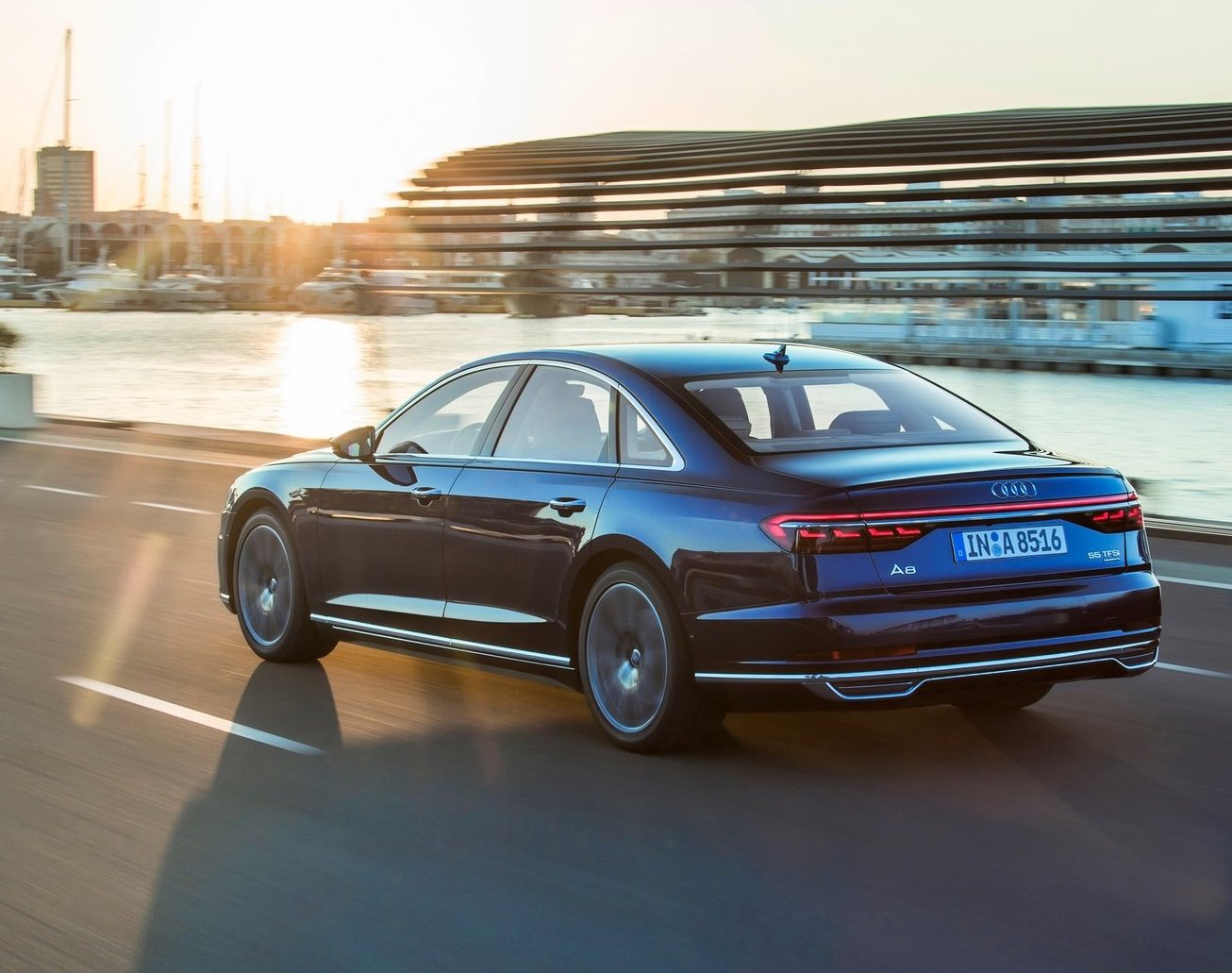
One of the main contentions about the implementation of the Approved Permit (AP) policy in the past has been allegations that these APs were given to a small number of well-connected individuals and companies which then quickly sold the APs to other parties for a quick profit. These allegations led many people to ask for the abolition of the AP policy.
Under Pakatan Harapan (PH), we are committed to ensuring that only genuine Bumiputera entrepreneurs are able to obtain these APs. In September 2018, our Prime Minister, Tun Dr. Mahathir, warned those who sell their APs for a quick profit will find their permits being cancelled.[1]
MITI’s statement on the 13th of March, 2019 outlined some of the stringent conditions by which existing AP holders as well as new applicants were evaluated before their APs were issued in 2019.[2] These companies:
- Must be 100% Bumiputera-owned companies based on their registration with the Companies Commission of Malaysia (CCM)
- Must have paid up capital of at least RM1 million
- Must have experience of at least 2 years in selling and distributing motor vehicles
- Must not have directors / shareholders / management team with shares in other companies holding open APs
- Must have a minimum of 5 full-time staff in management, marketing and the technical departments
- Must have a suitable showroom and office
- Must have the financial and managerial capabilities to operate a business to sell imported vehicles via Open Aps
Once a company has been allocated Open APs, they must comply with the additional requirements:
- Any change in the equity holdings and the directors of any company must obtain the approval of MITI before this can be executed
- No usage of middle-men or intermediary companies to sell these Open AP vehicles
- Opening of new branches to sell vehicles obtained via the Open AP must have the approval of MITI
- The vehicles must be displayed or stored in a MITI-approved premise
- The documents for importation (Bill of Lading / Airway Bill) must not be more than 1 month from the date when the company submitted its AP application to MITI. The name of the company in these documents must be the same as the name of the company in the MITI application and approval forms.
- The company must produce the import and sales figures as well as the record of inventory to MITI before the 10th of every month
- The APs must be used in the year of approval which is before the 31st of December every year
- The company must prepare a warranty of at least one year and have an agreement with the Original Equipment Manufacturer (OEM) to provide after sales services
As a result of these stringent application and approval conditions, only 164 out of 282 applications were approved by MITI. Out of these 164 approved applicants, 128 are existing companies and 36 are companies which previously did not receive any APs (termed as “new” companies). Out of 109 applications by new companies, only 36 were approved.
Although there are no longer hard caps on the number of APs which can be issued in one year, there are definitely hard caps on the maximum number of APs which a company can obtain.
For companies which have not obtained APs in the past and which have a paid up capital of RM1 million, the maximum number of APs for passenger cars which can be obtained is 60 per company. For existing players with a paid up capital of RM2 million, RM3 million, and RM4 million, the maximum number of APs which can be obtained by these companies are 120, 180, and 240 respectively (See Table 1 below).
The rationale of capping the number of APs for companies which have not received APs in the past is to ensure that these companies have the financial and sales capability to sell up to 60 vehicles first in their first year before they can increase their quota of APs in the future, based on their paid-up capital.
Table 1: Maximum number of APs (vehicles) allocated in 2019 by company type
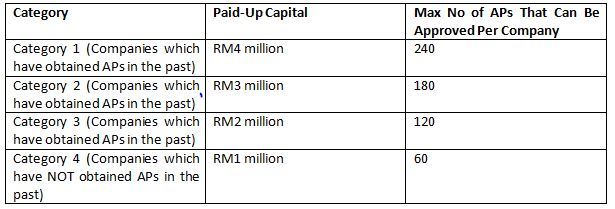
The total number of Open APs issued has not breached the 30,000 mark over the past 2 years. They represent only about 4.3% and 5.3% of total passenger car sales in 2017 and 2018 respectively (See Table 2 below).
Table 2: Total Number of Open APs issued compared to Total Passenger Car Sales (2017 vs 2018)

Open APs are issued mostly for the higher end of the consumer market segment. They have no effect on the car prices for the mass market. The volumes of the cars brought in via Open APs are very small when disaggregated into the various brands. The low volumes don’t provide enough economies of scale for them to be assembled in Malaysia.
In fact, the large majority of passenger cars on the road, including the foreign brands, are manufactured and/or assembled in Malaysia. Honda, for example, has a local plant in Pegoh, Melaka[3]; Toyota has a new manufacturing plant in Bukit Raja, Klang[4]; Tan Chong Motors assembles the current Nissan models in its plant in Serendah, near Rawang.[5] Even Mercedes-Benz has a local plant in Pekan, Pahang[6] assembling plug-in hybrids while BMW has a local plant in Kulim, Kedah[7].
With the localisation of the domestic passenger car market, APs are no longer as commercially lucrative as they once were. Car sales in Malaysia and globally have slowed down and the accumulation of the stock of imported luxury cars have dampened the local market conditions. With a RM10,000 price tag per AP plus the investment needed for showrooms and paid up capital, only genuine and competitive players can remain in the market.
MITI continues to push for greater transparency in our AP policy. The full list of ALL 164 AP holders has been published in MITI’s website[8].
We encourage the public to report any information regarding AP holders who may be attempting to sell their APs to third parties to [email protected] or to call the hotline (603) 6208 4970 or to write to “Director, Export and Import Control Section, MITI, Level 7, Menara MITI, No.7, Jalan Sultan Haji Ahmad Shah, 50480 Kuala Lumpur, Malaysia”.

